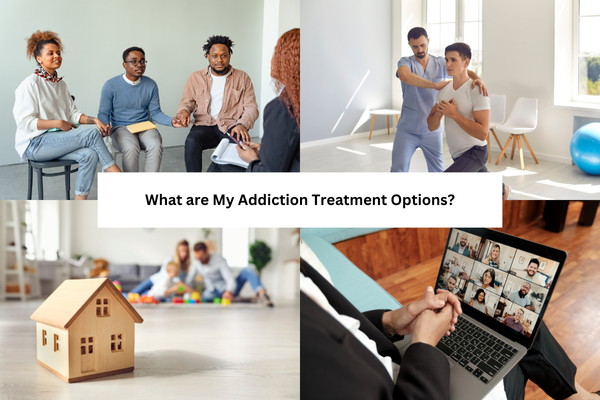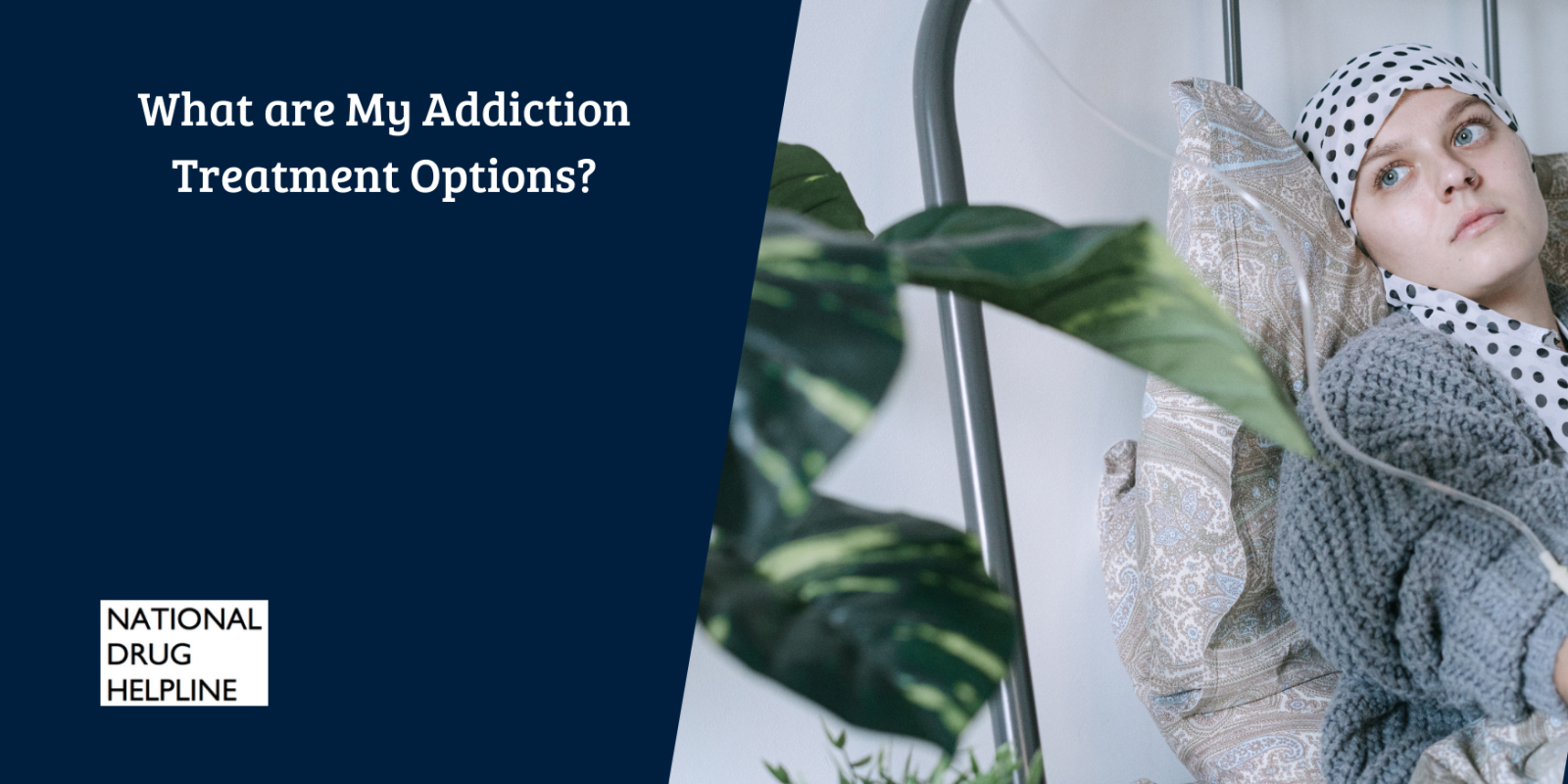Addiction is a serious yet misunderstood condition that affects millions of people and their families every year. Addiction to alcohol, drugs, or harmful behaviors has also made a profound impact globally on social and economic resources.
If you are wondering, “What are my addiction treatment options?” you are not alone. Fortunately, increasing awareness regarding this long-misjudged condition has led to the wide availability of several addiction treatment options. Many of these studies have revealed highly effective treatment options for managing addiction.
Understanding Addiction
Addiction is a medical illness in which there is an alteration in behavior, cognitive function, neurobiology, and physical functions[1]. It is associated with repeated and compulsive use of addictive substances or behavior. Irrespective of the type of addiction, the progression of this condition has similar stages and there are signs of addiction you need to look out for.
It begins with initial use, followed by withdrawal and craving. Eventually, this leads to dysregulation within the neurological systems involved in reward, stress, and emotion. As addiction is an actual medical condition, it can only be successfully treated with appropriate addiction support and addiction recovery programs.
What Are My Addiction Treatment Options?
To answer this question, addiction treatment does not have a one-size-fits-all approach. While there are many treatment options, the approach should be individualized and should not be based solely on the type of addiction. Multiple factors should be looked at when deciding how to quit addiction problems, such as the severity of dependence, personal circumstances, and mental health status. Some of the treatment options available are:
1. Detoxification (Detox)
In severe cases, the first step that is common for all is medically supervised detox[2]. This process helps remove the harmful substances safely from your body. This is the most challenging part of recovery, requiring multiple failed attempts before succeeding. However, this daunting phase can be easily overcome with the right support and guidance. While detoxing alone does not cure this condition, it lays the foundation for a successful treatment.
2. Inpatient Rehab for Addiction
Overcoming addiction is not a one-step program. It requires a lifelong commitment to self-care. However, the first few months are the most crucial and challenging phase, so it is best to seek all the help and support you can get. This is best done in an environment that has 24/7 care in a structured environment. Such programs provide individual and group therapy, constant medical support, and wellness activities. These are especially ideal for people who have been struggling with severe or long-standing addiction.
3. Outpatient Addiction Recovery Programs
Many outpatient programs allow people to attend treatment sessions at scheduled times while living at home. This is suitable for people with less severe addiction who need to maintain commitments to their work or family. There are two options within this category — intensive outpatient programs and partial hospitalization programs.
4. Addiction Counseling Services
To address psychological triggers, professional addiction counseling services are vital. Some evidence-based, commonly used therapies include cognitive behavioral therapy, dialectical behavior therapy, and motivational interviewing.

5. Medication-Assisted Treatment (MAT)
Medication-assisted treatment (MAT) combines medications approved by the FDA with behavioral therapies, especially effective for addictions to opioids and alcohol[3]. Medications that help reduce cravings and withdrawal symptoms are methadone, buprenorphine, and naltrexone.
6. Support Groups for Addiction
Following primary therapy, continued maintenance therapy in the form of support groups for addiction, such as Alcoholics Anonymous (AA), Narcotics Anonymous (NA), or SMART Recovery. These support groups can provide ongoing support from peers who are themselves in recovery. Such groups foster a sense of community and enhance accountability, both are essential for long-term recovery.
7. Addiction Therapy
Addiction therapy through individual, group, and family sessions promotes healing. Involvement of the family often improves the outcome, especially when relationships have been strained as a result of addiction.
8. Online Addiction Help
With the advancements in teletherapy, there are now several virtual platforms that offer access to online addiction treatment. Digital support groups and remote monitoring tools are especially beneficial for people who live in rural areas or those with mobility challenges.
What Are Treatment Options for Drug Addiction and Abuse?
For those wondering what treatment options are available for drug abuse and addiction, it is helpful to break it down by type:
- Opioid Use Disorder: Medication-assisted treatment with methadone or buprenorphine, together with behavioral therapy, is an effective approach for opioid addiction.
- Cognitive behavioral therapy for addiction to stimulants such as cocaine and methamphetamine.
- Motivational enhancement therapy is a good treatment option for addiction to cannabis or hallucinogens.
- People who are addicted to multiple substances can follow a multidisciplinary approach, including detox, therapy, and ongoing medical care.
Long-Term Addiction Treatment Options
Treatment options for long-term addiction are essential for preventing relapse[4]. Treatment options may include:
- Extended residential programs (60+ days)
- Sober living homes
- Ongoing therapy and life coaching
- Regular group meetings
- Employment and life skills training
Addiction is a lifelong condition, and therefore, it requires long-term maintenance strategies just as much as initial interventions.
Treatment for Co-Occurring Disorders
Most people with addiction suffer from underlying mental health conditions such as depression, anxiety, or post-traumatic stress disorder. Combination treatment that integrates programs addresses both addiction and mental health disorders simultaneously, which significantly improves outcomes.
Overcoming Addiction Is Possible
Recovering from addiction is not a straight line. It is a path that requires persistence and may even need multiple attempts. The key thing to remember is that this is not something you need to do alone. There are alcohol addiction support and drug addiction resources that are always available to help.
Final Thoughts: Your Next Step Toward Recovery
If you are still wondering, ‘What are my addiction treatment options?”, just know that there is professional care, peer support, and personal commitment available that can help you recover. To begin with, you can talk to a healthcare provider or call an addiction hotline.
References
| ↑1 | Koob, George F., and Michel Le Moal. “Drug abuse: hedonic homeostatic dysregulation.” Science 278.5335 (1997): 52-58. |
|---|---|
| ↑2 | Kleber, Herbert D. “Pharmacologic treatments for opioid dependence: detoxification and maintenance options.” Dialogues in clinical neuroscience 9.4 (2007): 455-470. |
| ↑3 | Maglione, Margaret A., et al. “Effects of medication assisted treatment (MAT) for opioid use disorder on functional outcomes: a systematic review.” Journal of substance abuse treatment 89 (2018): 28-51. |
| ↑4 | Hser, Yih-Ing, et al. “Long-term course of opioid addiction.” Harvard review of psychiatry 23.2 (2015): 76-89. |

